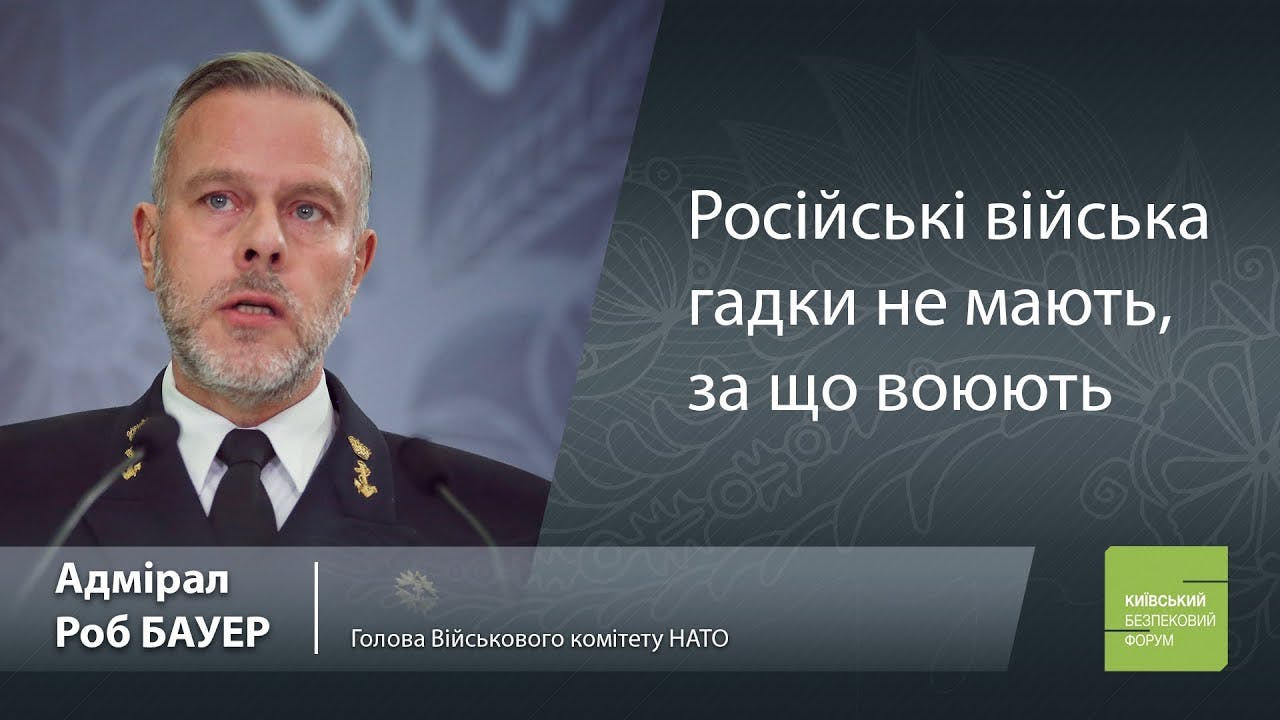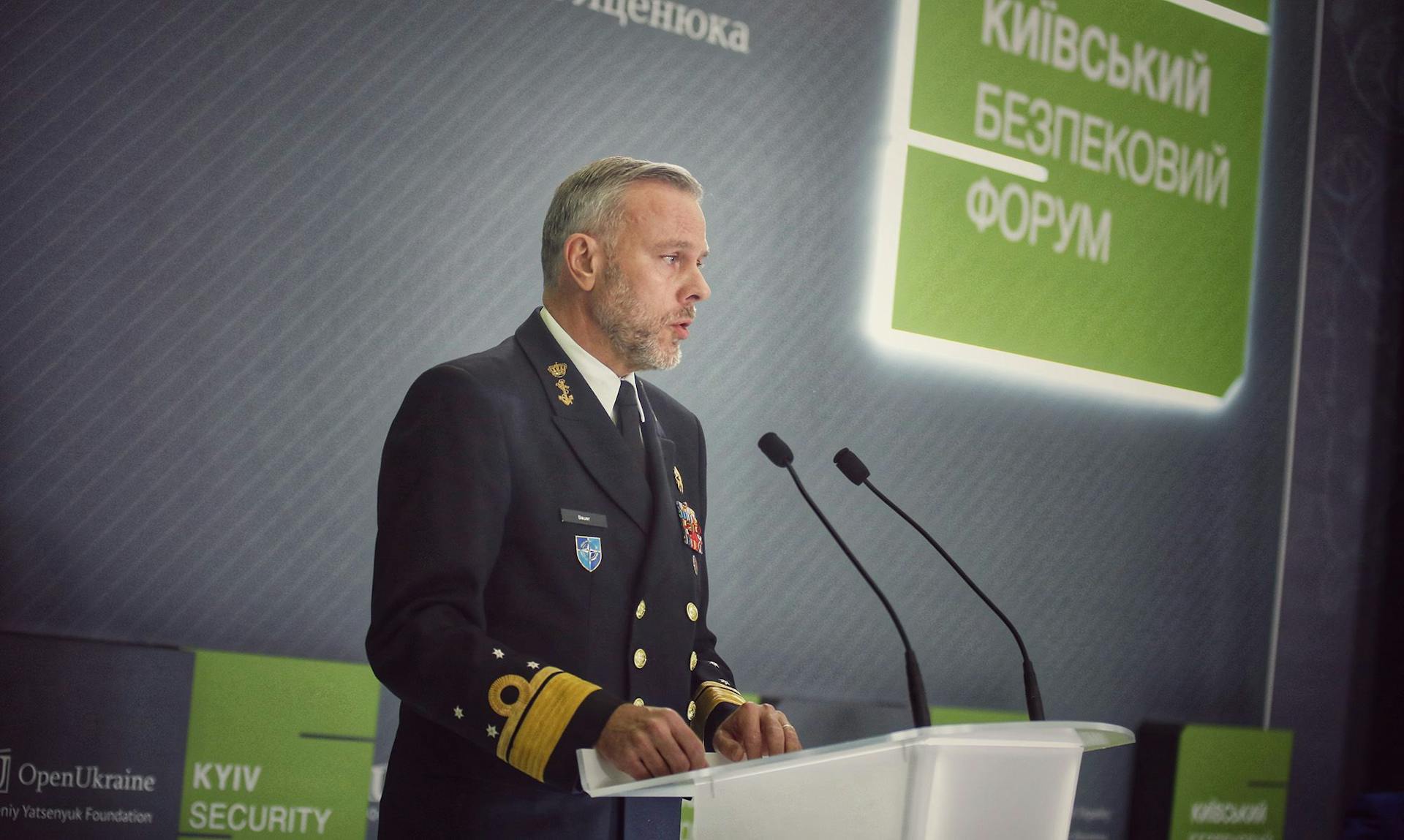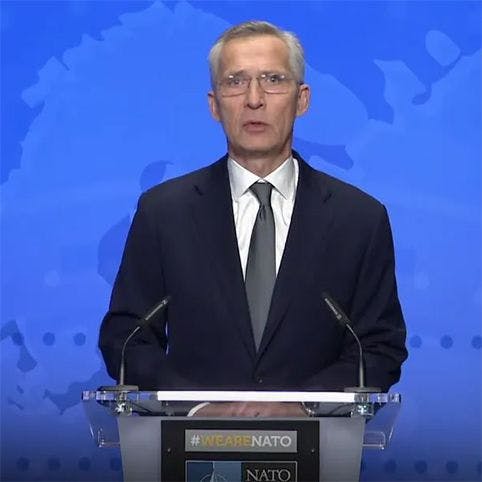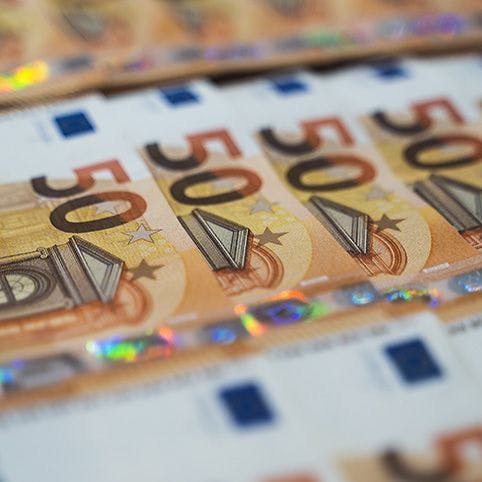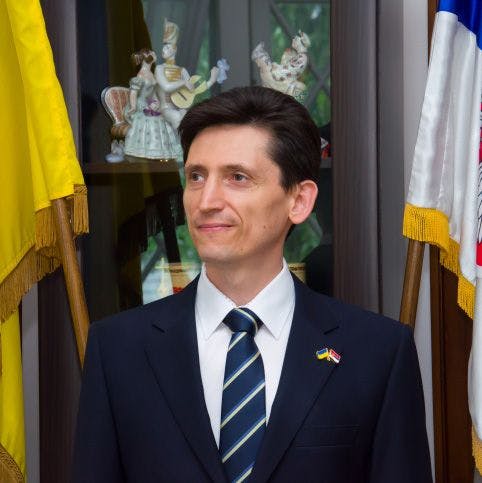
Anka FELDHUSEN, Ambassador Extraordinary and Plenipotentiary of the Federal Republic of Germany to Ukraine
The late Canadian Prime Minister Pierre TRUDEAU once said, "The essential component of politics is timing." And I completely agree with this statement. I lived and worked in Ukraine for more than ten years in total, and since 2019 - as the Ambassador of Germany. Therefore, I have the honor to be a direct witness of the most significant events in the history of independent Ukraine and to observe how Germany's relations with Ukraine are becoming closer and closer.
They say that Germans are very punctual. However, only a few of my Ukrainian friends could say that Germany chose the right time in its support of Ukraine's struggle against Russian aggression. Can I agree with them? On February 27, 2022, Chancellor Olaf SCHOLZ addressed the Bundestag, our national parliament, with the now famous words about the “Zeitenwende”, an epochal change in both international politics and German foreign policy. Three days after putin's terrifying full-scale invasion of Ukraine, Germany abandoned its previous policy of many years and announced that it would supply weapons to Ukraine to protect freedom and democracy. I believe that this decision was timely.
After that day, Germany took the right steps. But since we Germans are considered not only punctual but also thorough, some of our military support decisions took some time. And I really understand the impatience of Ukrainians about this, given the existential threat that the country is facing from February 24, 2022.
As of now, our overall support to Ukraine – financial, humanitarian and military – is second only to the aid provided by the United States of America.
In many areas, however, our support actually precedes a full-scale Russian invasion. Since the beginning of the war, which was unleashed by Russia in 2014, we have been a close partner of Ukraine, for example, in providing housing, providing social and administrative services, as well as psychological support to internally displaced persons who were forced to leave the areas of Luhansk and Donetsk regions , which were under Russian occupation. In another area, no less important, Germany helped in the development of the anti-corruption tool for public procurement "Prozorro" in 2016. And our multimillion-dollar support for one of the most important reforms in Ukraine - decentralization - began back in 2015.
By being included in the solution of these issues at an early stage, we were able to quickly and effectively adapt our actions to the new reality of full-scale war. In mid-April, my colleague from the EU and I visited newly built modular houses in the Chernivtsi region. In light of Russia's strikes on Ukraine's energy infrastructure, we equipped these EU-funded residential buildings with solar panels and batteries to ensure autonomous energy supply. Back in April 2022, U-LEAD, our multi-year EU-funded Ukraine decentralization project, leveraged its well-established relationships with over 250 Ukrainian communities to send them rebuilding kits, including generators and tools to provide relief where it is most needed.
Providing housing for people who lost everything due to Russian terror, supporting anti-corruption reforms and decentralization will not repel Russian aggression, but tanks will. But while we are increasing military aid to Ukraine, as I write this article, I believe that one is inseparable from the other. Ukraine must not only win this war, but also win peace, which we hope will come very soon. Administrative reforms sound uninteresting, but they contribute to the security of Ukraine, turning it into a state free from corruption and one that has powerful and independent institutions at all levels: the center, regions and communities.
Reconstruction of Ukraine has already begun and it will require significant funds within the framework of international support. The Ukrainian government, together with the EU and the World Bank, calculated that the financial needs for the reconstruction of lost and damaged property will reach more than 400 billion dollars. USA in the coming decade. Maintaining the trust of legislators in the partner countries that will allocate these funds to Ukraine will require Ukraine to become a model of corruption prevention. "Building back better" requires the rule of law, anti-corruption and good governance as primary prerequisites.
The same applies to decentralization. The war not only creates tremendous pressure on Ukraine's resources. It also sets different tasks for the regions and cities of the country. The eastern and southern regions are experiencing the greatest destruction and hostilities, they host the wounded and a large number of military personnel. The western and central regions, on the other hand, host large numbers of internally displaced persons and relocated businesses, posing hitherto unknown challenges to the housing market and local economy. No central government, however good-willed and efficient it may be, can carry out perfect planning for both groups of regions. Decentralization involves the transfer of decision-making and responsibility to the regional and local levels in compliance with the principle of subsidiarity, i.e. all political issues should be resolved locally as much as possible. Because people there know better what is most necessary for them and their towns and villages. Equally important, the opportunity to create change inspires people to take responsibility and build prosperous and sustainable communities for future generations.
In the early days of the Russian invasion, the Ukrainian decentralization reform helped a lot in the defense of the country. Many mayors responded to the challenge and used their authority and knowledge of the region to prepare in advance to repel Russian attacks, as well as to protect the civilian population. Many of the inspiring stories from the early weeks of the war were about those courageous mayors who defended their cities, in some cases at the cost of their lives or freedom.
Ukraine is determined to join the European Union and has the support of its international partners, including of Germany, regarding the monumental task of rebuilding the destroyed to a state "better than it was". If the policy involves the right choice of time, Ukraine cannot afford to wait for the end of the war and put its reforms on hold. The Government of Ukraine and the Verkhovna Rada must do everything necessary to build an even stronger democracy with independent institutions that live and breathe the rule of law.
Politics is about timing. And although Ukrainians may sometimes think that we are lagging behind in providing military support, I want to summarize two important things in view of the above. First, Germany together with Ukraine. We have demonstrated this in key issues on the path of reforms in the country since the Revolution of Dignity. And, secondly, Germany is on this path for a long time. Our support is thorough and long-term: to help protect Ukraine and its people, to restore livelihoods and implement social projects, in anti-corruption reforms and decentralization as part of the process of joining Ukraine to the EU. As long as it is necessary.
Glory to Ukraine!




